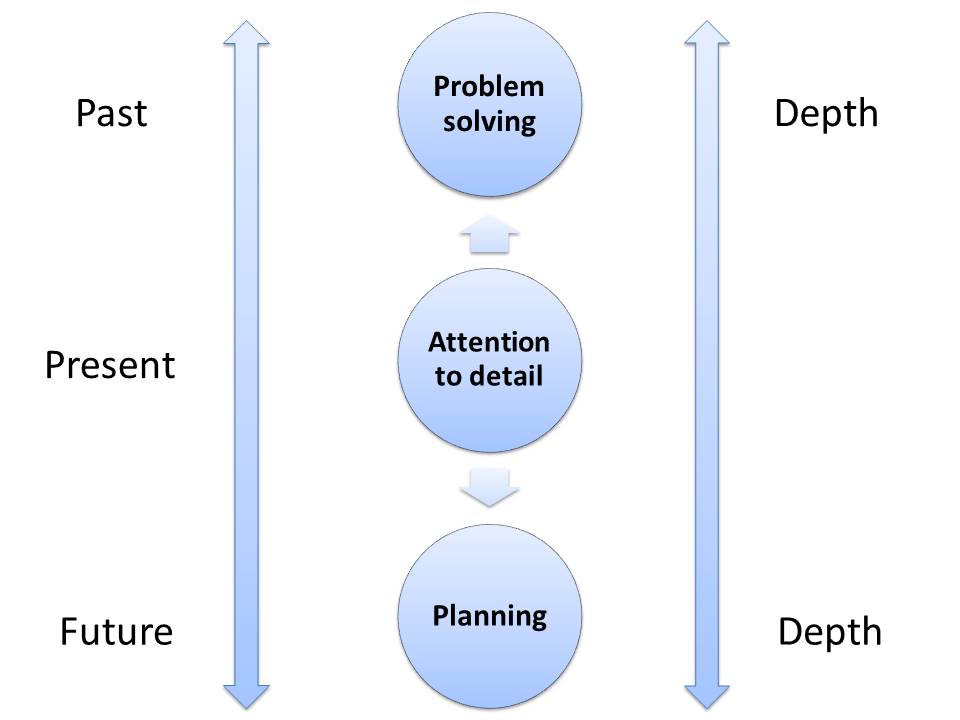If you’ve ever perused through job notifications, you must have noticed that employers are constantly looking for ‘attention to detail’ in applicants. If you haven’t noticed this, then maybe you need to work on your ‘attention to detail’ skill.
Jokes apart, if you can pay attention to the details, you can improve all aspects of your life- from work to relationships. In this article, we’ll throw light on why attention to detail is such a big deal in the modern workplace- why it’s the skill of the 21st century.

Limited human attention span
Let’s first talk about human attention. Our ancestors wouldn’t have gained much if they paid attention to every little detail in their environments. Their problems were simple- avoid getting eaten by predators, find mates, protect kin, etc.
Hence, our attentional system is geared toward providing attention to few, evolutionarily relevant stimuli.
Media and news agencies often exploit this attentional bias of ours. News agencies, for instance, know that by bombarding you with sleazy and fear-invoking news, they can get your attention. Negative news sells.
In the past couple of decades, technology has progressed rapidly. The situation we find ourselves in is unprecedented. Our stone-age brains are struggling to keep up with the rapid influx and availability of information.
The result being that, on any given day, our attention is being pulled at in different directions, much like a puppeteer pulling strings. Hence, many people find that their attention is splattered all over the place.
Next time you feel your attention is all over the place, take a moment to think about what’s pulling your strings. Often, you’ll find an evolutionarily relevant theme (violence, sex, food, gossip, etc.).
The goal is not to avoid these themes altogether, of course, but to be more deliberate than reactive in dealing with them.
Stone-age brain versus modern times
On one hand, we’re easily hooked by evolutionarily relevant themes. On the other hand, the problems we face at work are becoming increasingly complex, especially with the availability of tons and tons of data.
To solve the many complex problems of modern life, we need to focus and pay attention to detail. But this isn’t something that comes naturally to us. This isn’t what we’re wired to do.
Ironically, the very psychological mechanisms that were designed to help us solve our problems in ancient times come in the way of solving them in modern times.
Attention to detail versus knowledge
There used to be a time when being knowledgeable made you valuable in the eyes of society and of employers. It still does, but the value of knowledge has now decreased significantly because of its easy accessibility. Anything you want to know is probably only a couple of clicks (or taps) away.
Hence, being knowledgeable is not ‘the skill’ of this century. Everyone can know what they want to know, but few can focus and pay attention to the details. Hence, having the ability to pay attention to details in a world where attention is fragmented is the most valuable skill of this century.
Benefits of paying attention to detail
As mentioned earlier, human attention is selective because it helped us avoid paying attention to irrelevant things. This tendency works against us in modern times when we’re trying to solve complex problems at work.
Complex problems, by their very nature, require that you pay attention to all their details. The human tendency is to simplify problems and be done with them. We come across a solution that fits and run to implement it, realizing later that there was more to the story than we thought.
Our attention only lets us see a slice of reality- a slice of the problem. Unless we learn to pay attention to the details, we’re likely to miss the entire picture.
As far as simple problems are concerned, sure, you can use rules of thumb to get around them. But complex problems are resistant to simple solutions and rules of thumb.
Complex problems require you to understand them inside out. The more information you collect about a complex problem, the more likely it is that you’ll come across a workable solution.
Paying attention to the details of a complex problem enables you to collect as much information about the problem as you can.
Attention to detail helps us look deeply into the past and into the future. The former makes us better problem-solvers and the latter better planners.
Employers seek good problem-solvers and planners because they produce high-quality and efficient work. They know the ins and outs of their work and, therefore, are less likely to make mistakes that incur heavy costs.

Improving attention to detail
Half the battle is won by realizing that paying attention to detail doesn’t come naturally to us. Hence, we must force and train ourselves to do it. People don’t pay attention to details for two reasons:
- They’ve never had to solve complex problems.
- They don’t see the value of paying attention to the details.
When you’re forced to solve a complex problem, you’re forced to pay attention to the details. When you finally solve the problem, the rewards of solving it are huge. The greatest reward, however, is a renewed appreciation of complexity and detail.
The greatest problem-solvers of the world also tend to be humble because the complexity of their problems crushes their ego many times over.
While others rush to solve problems they mistakenly think are simple, the geniuses wait in the background- waiting for the dust to settle. For they know that only when the dust settles, things become clear.
“We cannot solve our problems with the same thinking we used when we created them.”
– Albert Einstein
Skill of knowing what details to pay attention to
Sure, paying attention to details is important and can help us avoid making costly mistakes. But, given our limited attentional resources, an even more important skill is knowing what details to pay attention to.
Analyzing a complex problem is time-consuming and takes resources. If you can determine where to focus your attention, you’ll be indispensable to your employers. This is where intelligent preparation comes in.
Before diving deep into a complex problem, make sure the problem is worth solving and the details you pay attention to are likely to yield results.
With attention increasingly becoming a scarce resource, who knows, maybe in the future we’ll see employers looking for the skill of ‘knowing what to pay detailed attention to’.
